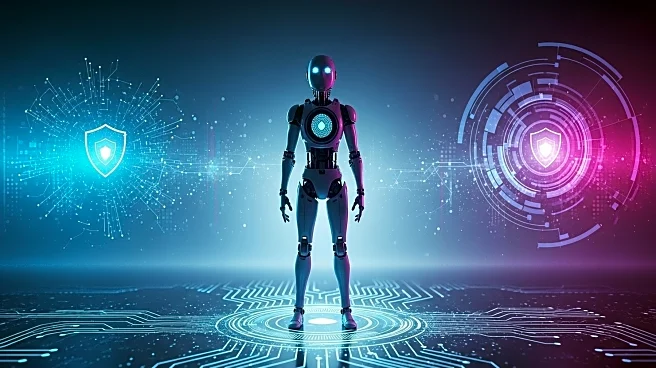What is the story about?
What's Happening?
Security Operations Centers (SOCs) are increasingly overwhelmed by the sheer volume of security alerts, with small to medium enterprises receiving around 500 alerts daily and larger enterprises facing up to 3,000. A significant portion of these alerts goes uninvestigated due to alert fatigue, leading to suppressed detection rules and increased risk. A recent analysis by Prophet Security highlights that 55% of security leaders are already utilizing AI for alert triage and investigation, with 60% planning to evaluate AI SOC solutions within the next year. The study suggests that AI could handle more than half of SOC workloads in the next three years, focusing on alert triage, detection engineering, and threat hunting. However, human intervention remains crucial for remediation and incident containment.
Why It's Important?
The integration of AI into SOCs represents a potential shift in cybersecurity operations, offering a solution to the growing problem of alert fatigue. By automating repetitive tasks, AI can free up human analysts to focus on high-value work, potentially improving efficiency and reducing burnout. However, the reliance on AI also introduces risks, such as the perpetuation of biases and the need for security practitioners to understand and trust AI technologies. The balance between AI and human judgment is critical, as AI can enhance but not replace the nuanced understanding and decision-making capabilities of experienced analysts.
What's Next?
As AI becomes more integrated into SOC operations, organizations will need to invest in training their analysts to effectively use and govern these technologies. This includes understanding AI's strengths and limitations and ensuring that AI-driven insights are used to augment human decision-making rather than replace it. The ongoing adaptation of cybercriminals using AI offensively will continue to challenge SOCs, necessitating a hybrid approach that combines AI efficiencies with human resilience strategies.
Beyond the Headlines
The ethical implications of AI in cybersecurity are significant, as the technology can perpetuate existing biases and potentially lead to over-reliance on automated systems. The cultural shift towards AI-supported operations requires careful consideration of the human element, ensuring that analysts remain central to SOC functions. Long-term, the integration of AI could redefine the role of cybersecurity professionals, emphasizing strategic analysis and decision-making over routine alert handling.
















